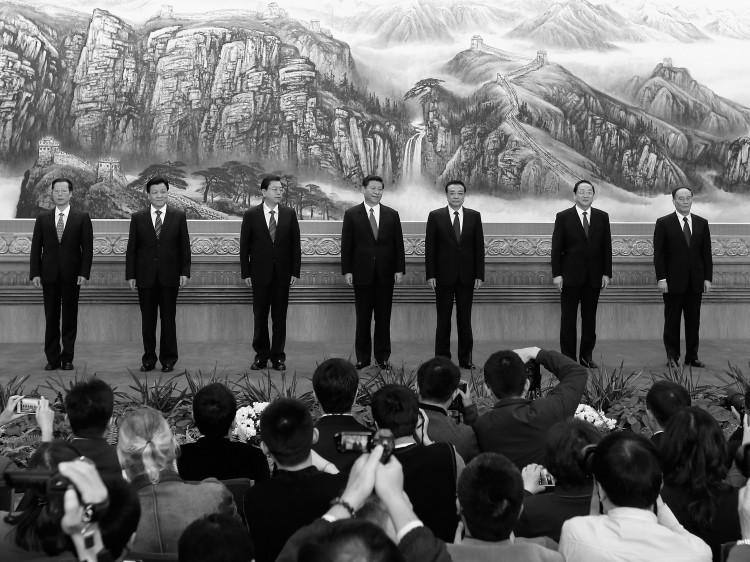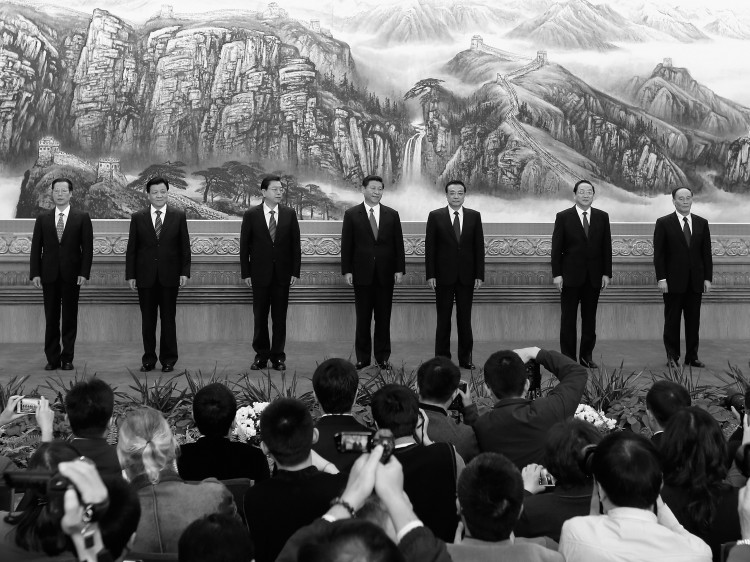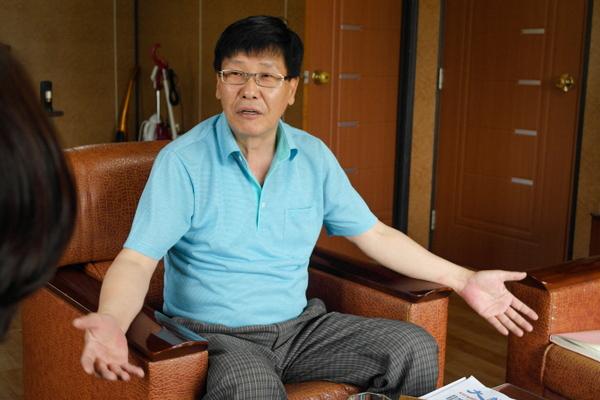The outcome of the 18th Party Congress of the Chinese Communist Party is not only an inauspicious sign for the Chinese people but also for South Korea, according to South Korea media.
South Korea Concerned by New Party Leadership in China, Say Media
The outcome of the 18th Party Congress of the Chinese Communist Party is not only an inauspicious sign for the Chinese people but also for South Korea, according to South Korea media.

(L-R) Zhang Gaoli, Liu Yunshan, Zhang Dejiang, Xi Jinping, Li Keqiang, Yu Zhengsheng and Wang Qishan greet the media at the Great Hall of the People on Nov. 15, 2012 in Beijing. Lintao Zhang/Getty Images
|Updated:




